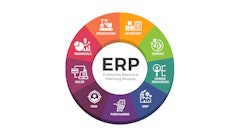Fresno, CA: The Supreme Court on Monday overturned a California law that would require euthanizing downed livestock at federally inspected slaughterhouses to keep the meat out of the nation's food system.
California strengthened regulations against slaughtering so-called "downer" animals after the 2008 release of an undercover Humane Society of the United States video showed workers abusing cows at a slaughterhouse.
In a widely expected decision, the high court ruled that the state's 2009 law was blocked from going into effect by federal law administered by the Agriculture Department's Food Safety and Inspection Service.
Federal law "precludes California's effort ... to impose new rules, beyond any the FSIS has chosen to adopt, on what a slaughterhouse must do with a pig that becomes non-ambulatory during the production process," said Justice Elena Kagan, who wrote the court's unanimous opinion.
Under California law, the ban on buying, selling and slaughtering of downer cattle also extended to pigs, sheep and goats.
Pork producers sued to stop the law, saying it interfered with federal laws that require inspections of downed livestock before determining whether they can be used for meat.
The Federal Meat Inspection Act allows a federal meat inspector to examine and then determine whether a downed animal is fit to be slaughtered for meat. It also says states cannot add requirements "in addition to or different than" its requirements.
About 3 percent of pigs that show up at slaughterhouses are non-ambulatory, the National Meat Association says, but veterinarians normally give the non-walking pigs a few hours to determine whether their problem is disease, or just stress, fatigue, stubbornness or being overheated from the trip to the slaughterhouse.
A federal judge agreed and blocked the law, but the 9th US Circuit Court of Appeals threw out the hold. The justices overturned that decision.
Federal law "regulates slaughterhouses' handling and treatment of non-ambulatory pigs from the moment of their delivery through the end of the meat production process," Kagan said. California's law "endeavors to do the same thing, at the same time, in the same place — except by imposing different requirements. The FMIA expressly pre-empts such a state law."
Officials from the National Pork Producers Council didn't immediately return calls seeking comment.
Former Assembly Member Paul Krekorian, who wrote the California legislation, said he was disappointed by the decision.
"The Supreme Court's decision will deprive states of the ability to protect their citizens from sick and disabled animals being made a part of the food supply," he said.
But supporters of the California law hope that federal legislation introduced this month by Rep. Gary Ackerman, D-NY, and Rep. Peter King, R-NY, will close a loophole in federal laws that allow the slaughter of some types of non-ambulatory animals.
"If the federal government had strong rules and laws on the books, there would be no reason for California or any other state to adopt a reinforcing statute," Humane Society of the United States executive director Wayne Pacelle said. "But it's precisely because the Congress and the USDA are in the grip of the meat industry that we have anemic federal laws on the subject."
The Humane Society's 2008 video showed workers at the Westlands/Hallmark slaughterhouse in Southern California using a forklift to prod downed cattle to get up to walk to slaughter.
Some workers used a high-pressure hose to shoot water up cows' nostrils to force them to get up, or kicked and prodded the animals. The supervisor at the plant was sentenced to 270 days in jail for animal abuse and the plant had to shut down.
Congress held hearings after the federal government recalled 143 million pounds of beef, much of it destined for school lunch programs.
Eventually, the government made changes in regulations governing the slaughter of cattle. In May 2008, the Agriculture Department banned the slaughter of cows too sick or weak to stand, because so-called "downer" cows pose an increased risk for mad cow disease, E. coli and other infections.
Some provisions of California's law were upheld. It's still illegal in the state to transport a downed animal to the slaughterhouse, and it's illegal to buy and sell sick livestock outside of the slaughterhouse. The high court also said that the ruling upholds state bans on slaughtering horses for human consumption.
But animals that become sick or stressed during transit to slaughter houses can be killed for food.
Source: The Associated Press















